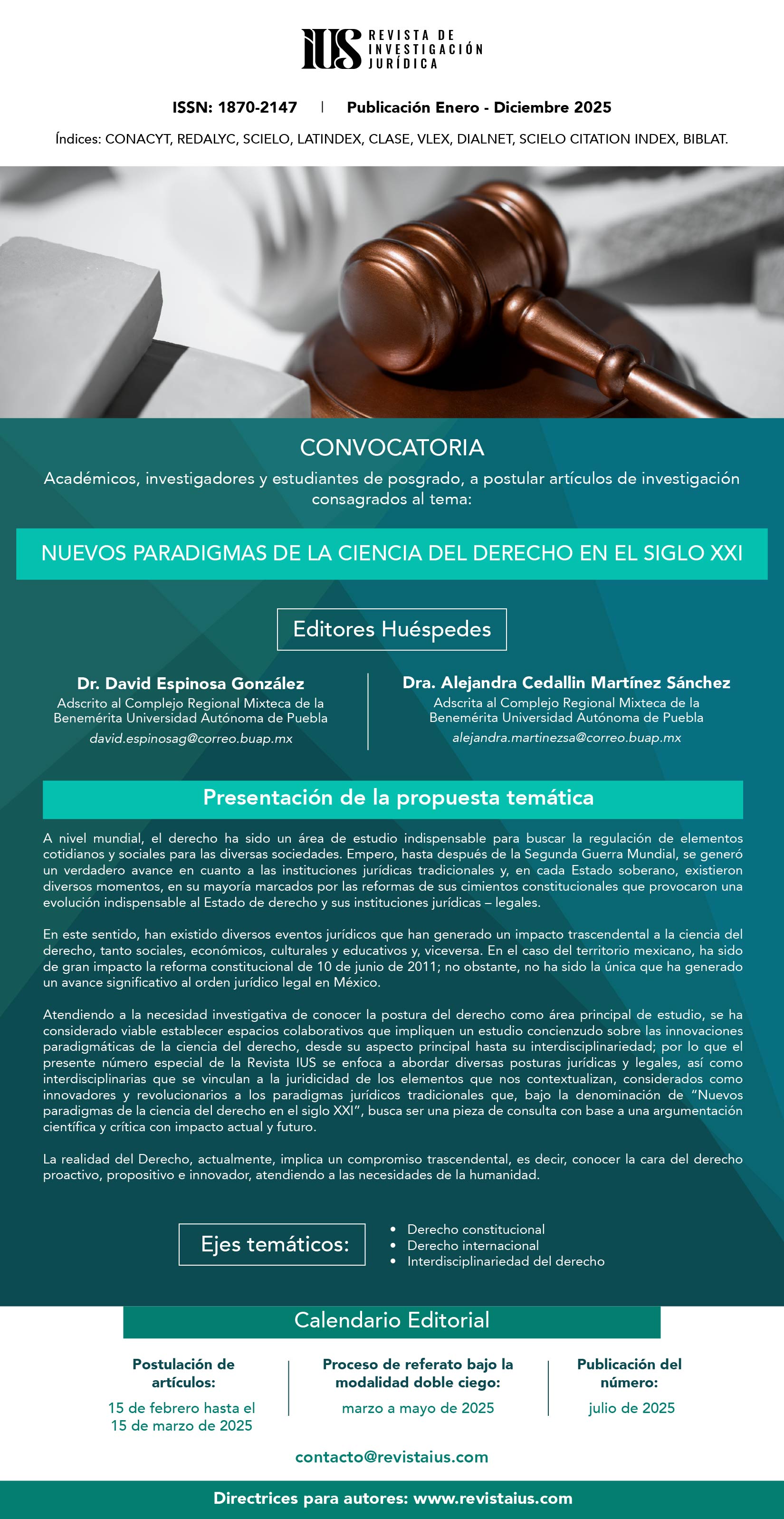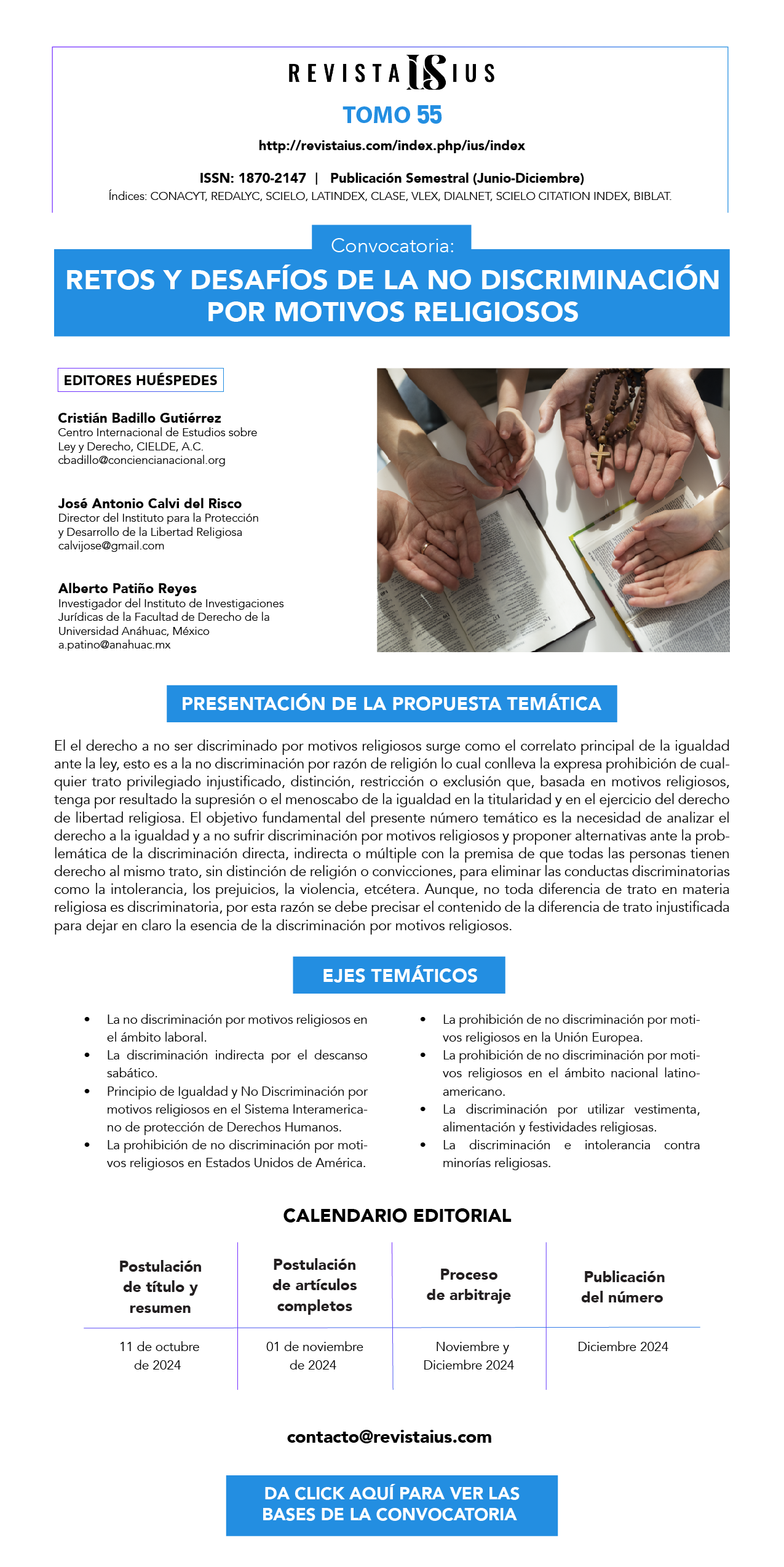The right of parents to decide on their children's education as an expression of religious freedom in Peru
DOI:
https://doi.org/10.35487/rius.v19i55.2024.1000Abstract
The present work seeks to develop the topic of the right that parents have to decide specifically in the education of their children, having as a main reference their own moral and religious convictions as an expression of a family model that should be the basis and the ultimate goal of society. This fundamental right of parents is closely related to the right to religious freedom that both parents and children have. Recently in Peru, a “bill” has been discussed that seeks to expressly recognize what the Peruvian constitution already states, granting parents the right to choose the sexual education that their children receive, in the face of the new ideologies in educational and sexual subjects that are taught in educational centers and that often collide with the religious convictions of the family. A current challenge in Perú.
Downloads
Downloads
Published
Issue
Section
License
Copyright (c) 2024 José Antonio Calvi del Risco

This work is licensed under a Creative Commons Attribution-NonCommercial-ShareAlike 4.0 International License.
Revista IUS, published by the Legal Sciences Institute of Puebla A.C., is distributed under the Creative Commons Attribution-NonCommercial 4.0 International (CC BY-NC 4.0) license.
We authorize collaborators to upload a copy of their published work on their personal websites or any Open Access repository, provided that Revista IUS is specifically cited as the original source, indicating the year and issue of the respective example and adding the link to the webpage on which this publication can be freely consulted in toto and without charge: http://www.revistaius.com
Readers are free to:
Share, copy and redistribute the material via any medium or format.
The licensor cannot revoke these freedoms as long as you follow the license terms.
Under the following terms:
Attribution: You must give appropriate credit, provide a link to the license, and indicate if changes were made.
You may do so in any reasonable manner, but not in any way that suggests the licensor endorses you or your use.
NonCommercial – You may not use the material for commercial purposes.
If you remix, transform or build upon the licensed material, its distribution is not permitted.
Charges for managing articles: Revista IUS will not charge for receiving, processing or publishing articles (Article Processing Charge, or APC) submitted by authors.





